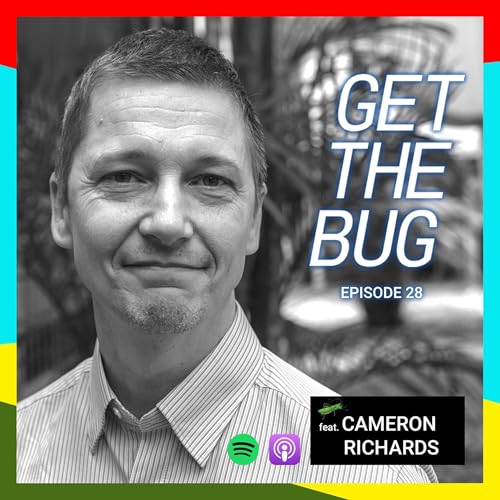
Get The Bug
カートのアイテムが多すぎます
カートに追加できませんでした。
ウィッシュリストに追加できませんでした。
ほしい物リストの削除に失敗しました。
ポッドキャストのフォローに失敗しました
ポッドキャストのフォロー解除に失敗しました
-
ナレーター:
このコンテンツについて
I’m Umberto Diecinove, I am a documentary photographer and a filmmaker. And – for a while now – I’ve been investigating the potential role of insects in the solution of some of the global challenges we’re currently facing.
To do this, I’ve been traveling around the world, taking photographs and talking to world experts, visionary entrepreneurs, activists and people working in the field.
Welcome to Get the Bug Podcast, where you can listen to the conversations I recorded during my journey.
Farming insects could reduce the agriculture need for land and overfishing in the oceans, but also lower greenhouse emissions and help smallholder farmers, in developing economies, to depend less on expensive imported feed.
So… what if insects are the next game changers?
Join me for this insightful conversation on the potential of insects to make the world a better place, and the lessons we can learn from nature to build a more sustainable future for generations to come.
Check out www.gtbpodcast.com for more details.
Hosted on Acast. See acast.com/privacy for more information.
Umberto Diecinove-
 16 分
16 分カートのアイテムが多すぎます
ご購入は五十タイトルがカートに入っている場合のみです。カートに追加できませんでした。
しばらく経ってから再度お試しください。ウィッシュリストに追加できませんでした。
しばらく経ってから再度お試しください。ほしい物リストの削除に失敗しました。
しばらく経ってから再度お試しください。ポッドキャストのフォローに失敗しました
ポッドキャストのフォロー解除に失敗しました
-
 25 分
25 分カートのアイテムが多すぎます
ご購入は五十タイトルがカートに入っている場合のみです。カートに追加できませんでした。
しばらく経ってから再度お試しください。ウィッシュリストに追加できませんでした。
しばらく経ってから再度お試しください。ほしい物リストの削除に失敗しました。
しばらく経ってから再度お試しください。ポッドキャストのフォローに失敗しました
ポッドキャストのフォロー解除に失敗しました
-
 2025/09/3019 分
2025/09/3019 分カートのアイテムが多すぎます
ご購入は五十タイトルがカートに入っている場合のみです。カートに追加できませんでした。
しばらく経ってから再度お試しください。ウィッシュリストに追加できませんでした。
しばらく経ってから再度お試しください。ほしい物リストの削除に失敗しました。
しばらく経ってから再度お試しください。ポッドキャストのフォローに失敗しました
ポッドキャストのフォロー解除に失敗しました


